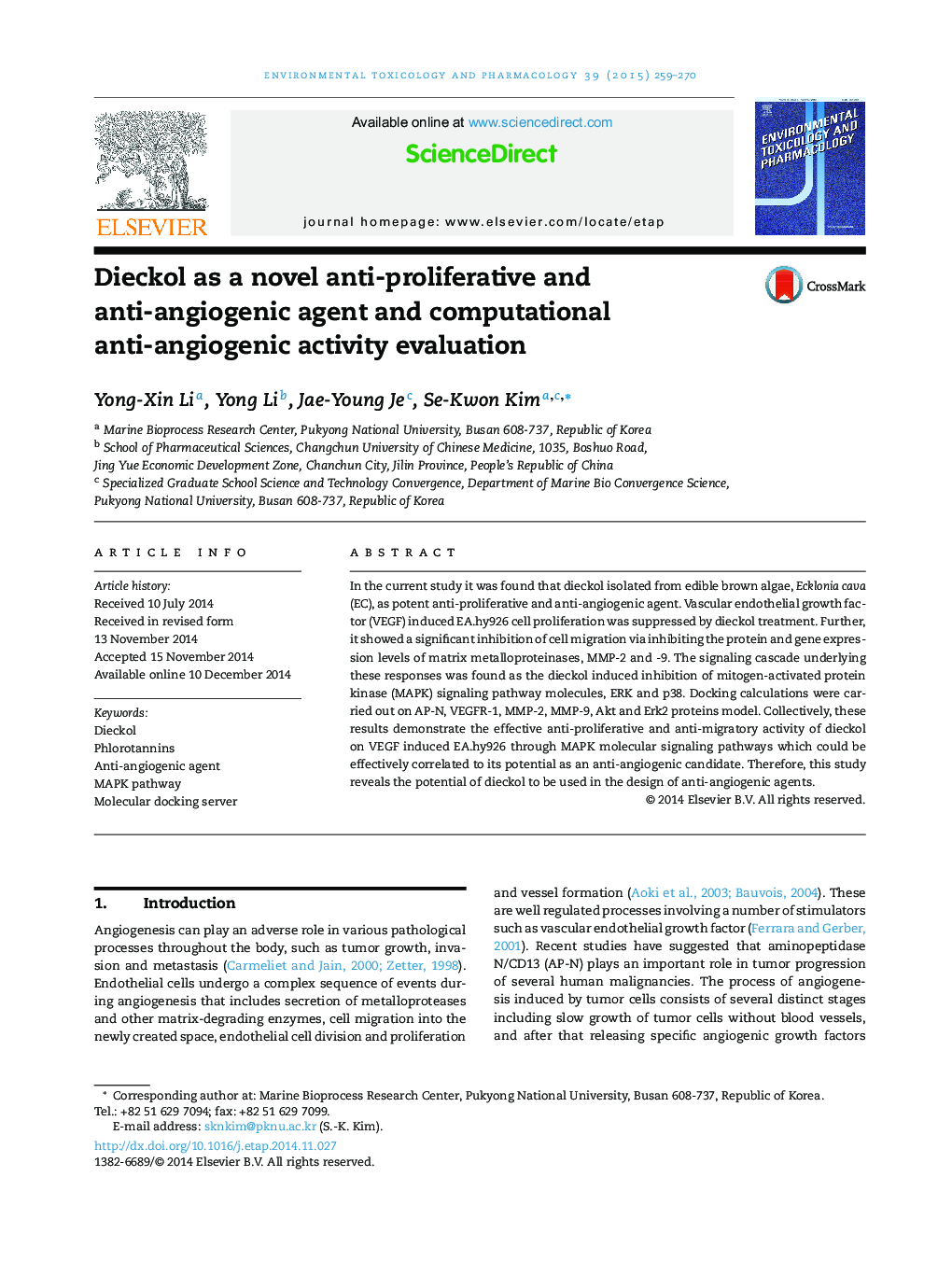| Article ID | Journal | Published Year | Pages | File Type |
|---|---|---|---|---|
| 2583285 | Environmental Toxicology and Pharmacology | 2015 | 12 Pages |
•Dieckol isolated from edible brown algae, Ecklonia cava.•Dieckol as potent anti-proliferative and anti-angiogenic agent.•Dieckol exerts an anti-angiogenic activity most probably via MAPK signaling pathway.•Structure–activity relationship analysis of dieckol.•Dieckol docking calculations were carried out on proteins model.
In the current study it was found that dieckol isolated from edible brown algae, Ecklonia cava (EC), as potent anti-proliferative and anti-angiogenic agent. Vascular endothelial growth factor (VEGF) induced EA.hy926 cell proliferation was suppressed by dieckol treatment. Further, it showed a significant inhibition of cell migration via inhibiting the protein and gene expression levels of matrix metalloproteinases, MMP-2 and -9. The signaling cascade underlying these responses was found as the dieckol induced inhibition of mitogen-activated protein kinase (MAPK) signaling pathway molecules, ERK and p38. Docking calculations were carried out on AP-N, VEGFR-1, MMP-2, MMP-9, Akt and Erk2 proteins model. Collectively, these results demonstrate the effective anti-proliferative and anti-migratory activity of dieckol on VEGF induced EA.hy926 through MAPK molecular signaling pathways which could be effectively correlated to its potential as an anti-angiogenic candidate. Therefore, this study reveals the potential of dieckol to be used in the design of anti-angiogenic agents.
